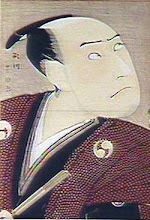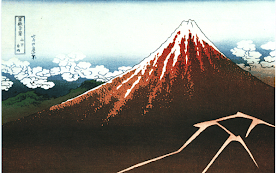For the first few years of the camp I was its Waterfront Director. The first year the camp was only for one week, and we had rented an entire private camp for the period. There had never been a summer camp for hemophiliacs before. (New York claims to have had one a year or two before ours, but theirs was a day camp and to our minds did not count. Our boys would be staying there all week, without their parents.) And to tell the truth we were secretly very nervous about the whole thing.
The first day the boys, twenty-one I think, checked in, said good-bye to their parents, found their bunks, and eventually made their way down to the beach for their swim checks. I was fairly sure they would most likely not know how to swim and for the most part they fulfilled my expectations. At that time most parents would not allow their sons to swim because they were afraid the activity and the strains would cause them to hemorrhage. There was even talk about the pressure of the water causing bleeds.
My family had discovered the opposite. The more my brother and I swam each summer the stronger we got, and the stronger we were the less likely we were to have a hemorrhage. The swimming also helped to loosen up joints crippled by the hemorrhages over the winter making it easier to do things like walk. But my parents were considered radicals, if not insane, because they allowed us to ride bikes and play football and baseball in the back yard and we were in the Boy Scouts. The theory was that we would discover, on our own, what our real limits were and wouldn't be dependent on them, or afraid to face life. So I had eventually obtained my WSI from the Red Cross, and there I was trying to figure out how I was going to introduce twenty some boys to swimming, and more importantly, being boys at a beach without sending them to the hospital.
I had one of my lifeguards, Jack was his name if I remember correctly, in the water and I was on a dock that ran out into the lake. One by one the boys waded out to where Jack stood. I would ask them if they could swim. If they said yes I would ask them to show me. If they said no I asked them if they, with Jack’s help, would try to do a back float. This let me see how afraid they really were of the water, and let me note which boys would be prone to over reach their capabilities and which might panic with little cause. For most, if not all, of the boys this was the first time they had been away from the constant supervision of their parents or a hospital staff and they were all somewhat nervous, but only a couple flat out refused to try to do the float and several were surprisingly successful.
It was late in the afternoon and we were checking the last few boys. A rather tall, lanky kid was wading out and to accommodate his height Jack moved a few more yards out into deeper water, and I stayed even with them on the dock. As the boy made his way to Jack a small boy sauntered out on the dock to stand by me. I said hello and he said, “Hey,” and I turned my attention to the boy in the water.
As it turned out he was very scared, but game, and did not do very well even with Jack supporting his head. I told him not to worry, we would help him learn to relax and it was more important he enjoyed himself, and he started back to the shore.
“He was awful.” It was the little guy standing beside me. He had stood there watching everything with his arms folded like he was just checking on one of his staff.
“Oh, you think so do you?”
“Yeah.”
“And just who are you?”
“Pat Flood.”
Someone once told me that guys with hemophilia tend to be a charming lot, and I think that it is probably true. We learn very early that our survival, and comfort, depend very much on the kindness of others and we develop those traits that make us more apt to get the care we need. All of the boys had been likable, polite kids whose biggest problem had been figuring out if it was safe to do what this mad man in a faded shirt and floppy hat was asking them to do; but Pat Flood was different. At six he was the youngest boy at the camp, and he was certainly charming, but he had an impish joy that many of the other boys lacked. Life was fun, and he was not going to let anything as minor as a hemorrhage get in the way of his enjoying it. Like Huck Finn he was destined to be president if he wasn’t hung first.
“So, Pat Flood, can you swim?”
“No. Wanna see?” With that he dropped his towel and flung himself off the dock.
For a second or two both Jack and I were too stunned to really react. Pat Flood was very actively, but very definitely, not swimming. He was churning up the water like a cartoon character, and the main impression was of a blur of spray and water with an occasional skinny arm or leg sticking out of it. Jack lunged toward him and I motioned for him to wait. After just a few seconds one of Pat’s hands made contact with one of the dock’s supports and he pulled himself up and clung to it sputtering and coughing. While he caught his breath and wiped the water from his eyes I sat down on the dock next to him.
“I gotta admit, Pat Flood, you were right. You very definitely can’t swim.”
“Told ya.”
“But why did you jump in. I would have taken your word for it.”
“I just wanted to show you how good I was.”
“At what? Drowning?”
“No, swimming.”
“But you can’t swim.”
“Yeah, but I’m better at it than that last kid.”
“That’s debatable.”
“So,” he said pointing to the raft about thirty yards out, “when can I go out there?"
"The way you swim? Not 'til you can walk out there."
"How deep is it?"
"Where the raft is? About twenty feet."
"Hmm. I'll have to grow a little."
That night the staff gathered in the dining hall. The program staff like me started wandering in around seven or so. The cabin councilors were much later. Each cabin had two councilors, and each night one of them could leave for an hour or two after the boys were asleep. Late in the evening a councilor came looking like what he really needed was a stiff drink. We asked him what was wrong.
"Pat Flood." Those of us that had had dealings with Pat laughed, and asked what he had done. "What the hell didn't he do? First, he organizes a contest to see who could pee the furthest off the back steps. We put a stop to that, and he starts a game of follow the leader. That starts out okay, and then the next thing we know he's got them jumping from one top bunk to the next. We get them calmed down and into their bunks, and he starts telling a ghost story. By the time he's done the boys are asking if there's a night light, and every time we get them calmed down again he makes this weird little noise that sets them off again."
The last time I saw Pat was at a special premier showing of the movie "Nicholas and Alexandra" the Foundation put on. He was about sixteen and still had the smile and impish eyes, and I knew that given half a chance he would make the world a better, more joyful place.
He died of AIDS the same year my brother did. The serum they had needed to stop a hemorrhage was made with blood that came from infected donors. One of the first things you learn growing up with hemophilia is that life isn't fair, and that awful things happen for no reason at all. But these two young men, and thousands of others, were killed because some pharmaceutical executives knew the blood was infected, but felt their profit margin was more important than a few thousand hemophiliacs. After all, so their thinking went, they were just bleeders—not real men.
13 September 2007
Subscribe to:
Post Comments (Atom)










No comments:
Post a Comment